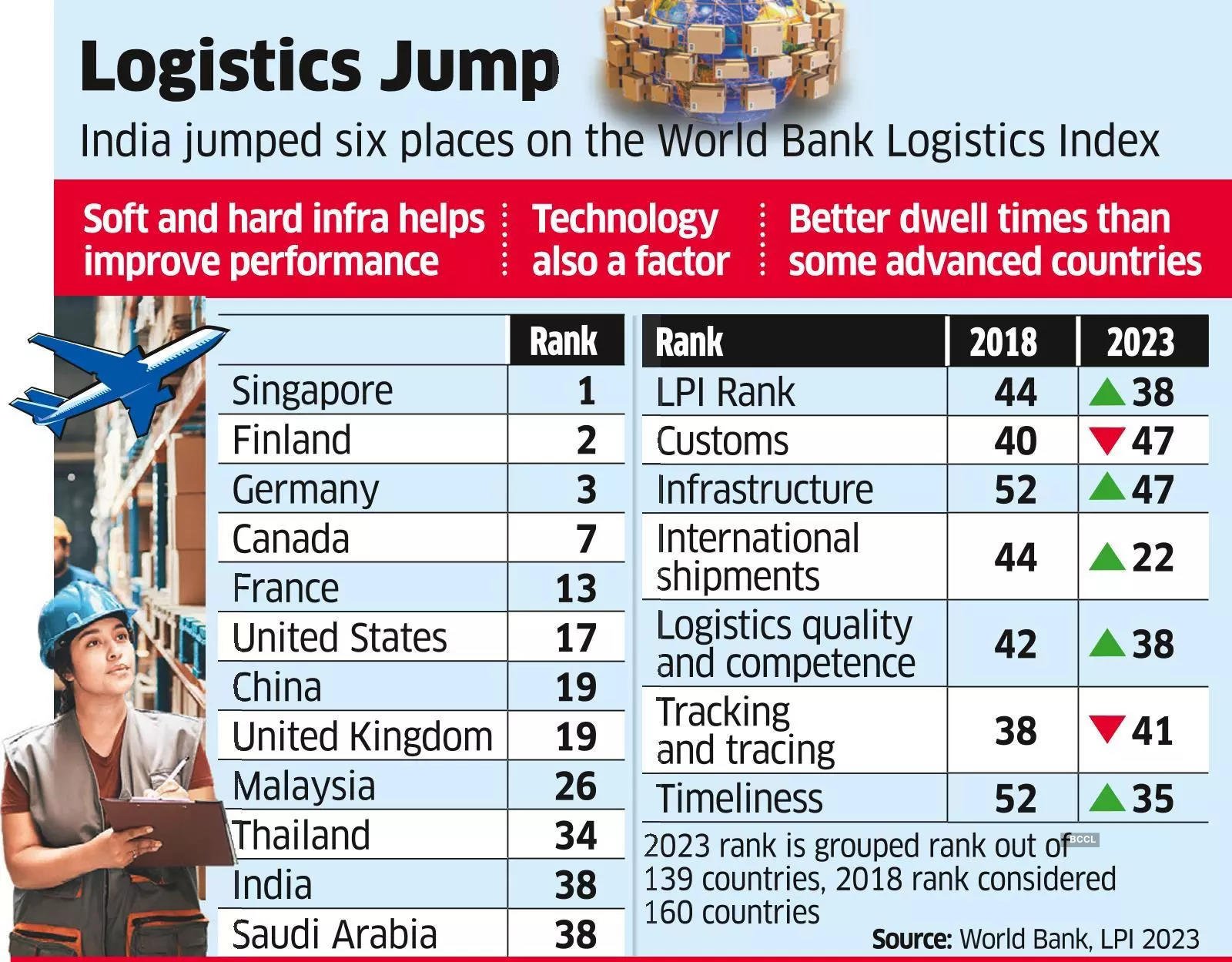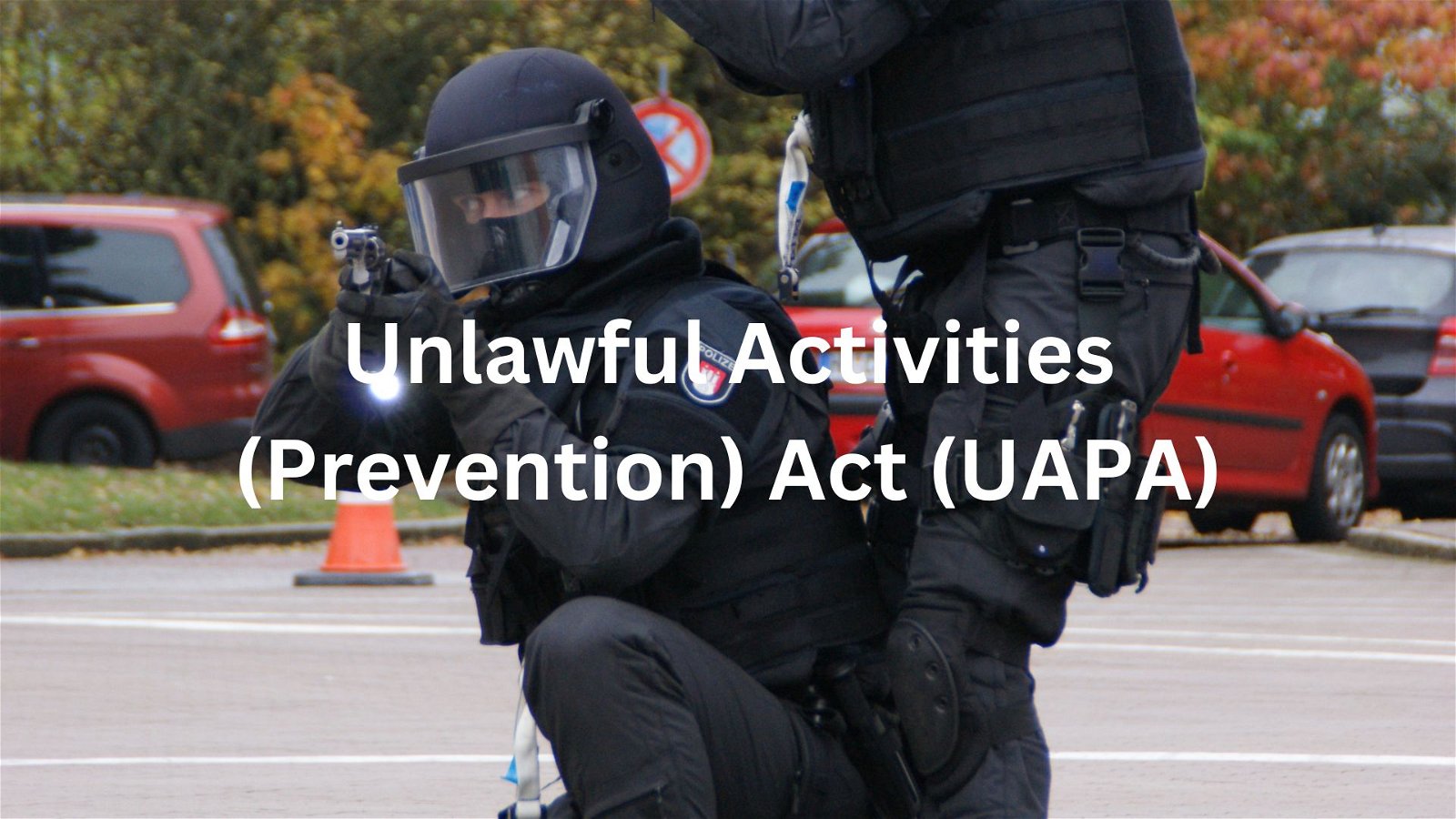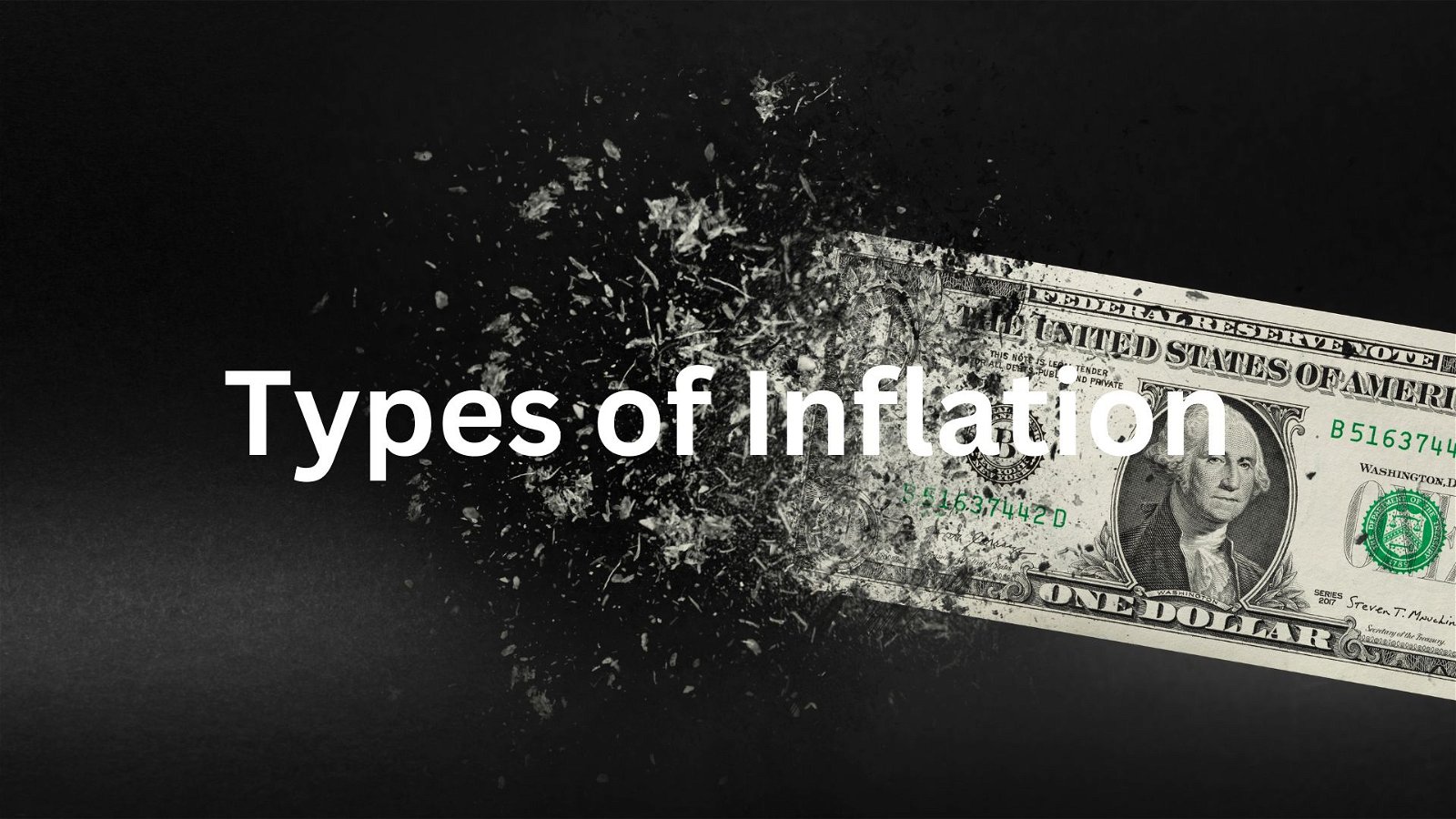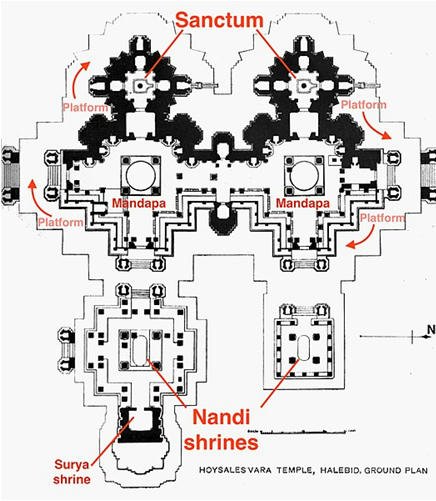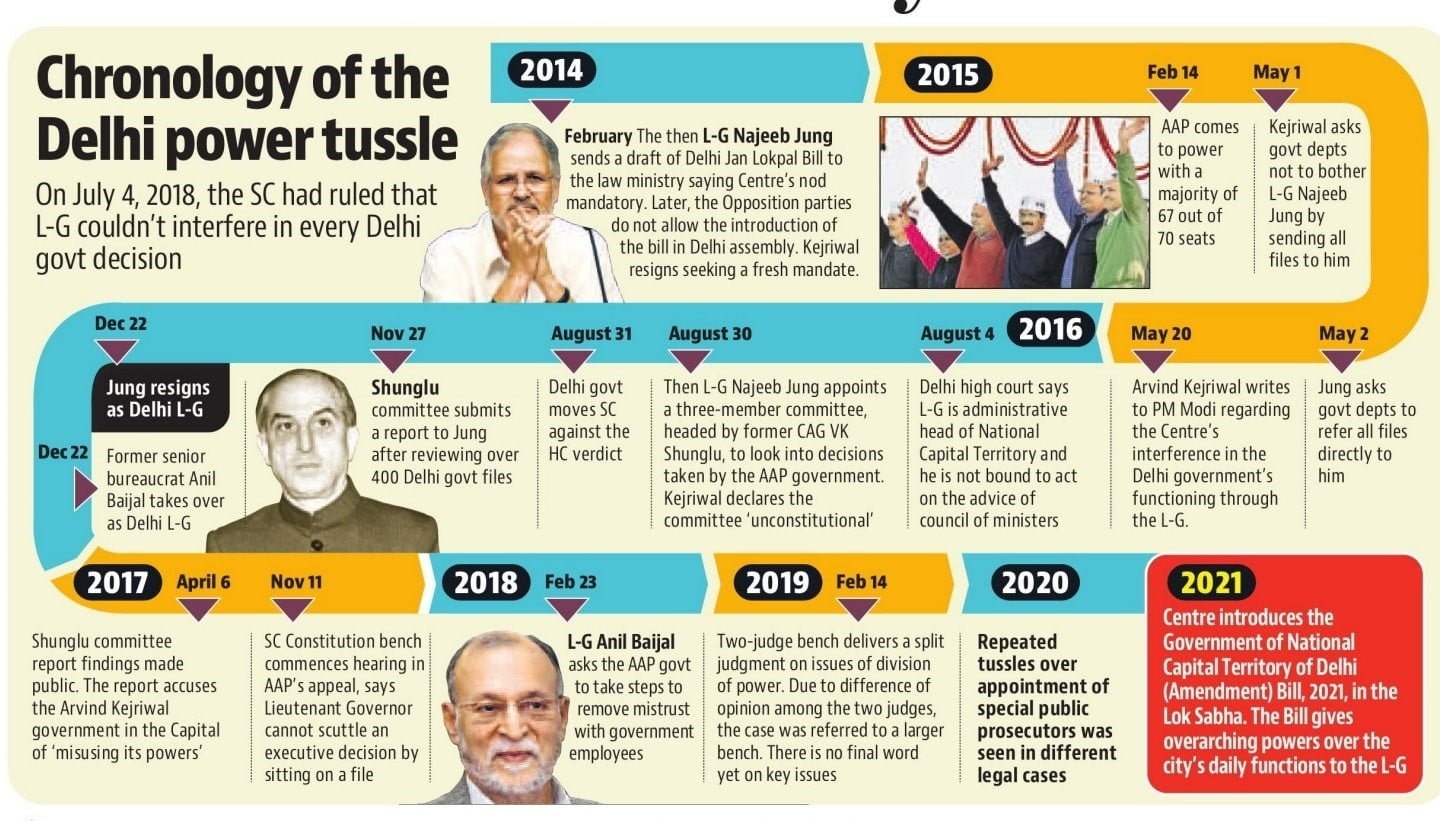
Current Affairs August 26, 2023: Fujiwhara Effect, NMC Guidelines on Generic Medicines, Smart Cities Mission, Fast Track Special Courts, Creation of new districts, Gun Jumping, Artemis Accords, Lion-Tailed Macaque, Sahyadriophis Uttaraghati
Subscribers of "Current Affairs" course can Download Daily Current Affairs in PDF/DOC
Subscribe to Never Miss an Important Update! Assured Discounts on New Products!
Must Join PMF IAS Telegram Channel & PMF IAS History Telegram Channel
{GS1 – Geo – PG – Climatology – 2023/08/26} Fujiwhara Effect
- Context (IE): California has witnessed Fujiwhara effect.
- When two tropical cyclones (or hurricanes) come in close proximity, they begin to rotate around a common midpoint (which looks like a dance). It is called the Fujiwhara Effect.
- Conditions necessary for the effect to occur:
- Two tropical cyclones formed around the same time in the same ocean region.
- The distance between the centres (or eyes) of the cyclones is less than 1,400 km.
- An intensity that could vary between a depression (wind speed under 63 km/hour) and a super typhoon (wind speed over 209 km/hour).


Consequences of Fujiwhara Effect
- Change in direction: Fujiwhara effect can change the direction of either or both storm systems.
- Change in intensity: It can enhance or weaken the intensity of the two cyclones.
- Mega Cyclone: In some cases, the two cyclones can merge together to form a larger, more powerful mega cyclone. This is a rare occurrence but can wreak havoc.
- Increased rainfall: Fujiwhara effect can also increase the rainfall of the two cyclones.
- Unpredictable path: It makes cyclones more unpredictable due to their rapid intensification.
{GS2 – MoHFW – Initiatives – 2023/08/26} Mandatory Prescription of Generics
- Context (TH | IE | IE): The National Medical Commission (NMC) put on hold its NMC Registered Medical Practitioner (Professional Conduct) Regulations, 2023 guidelines that made it mandatory for doctors to only prescribe generic drugs.
- The guidelines on generic drugs were opposed by the Indian Medical Association (IMA) and the Central Drugs Standard Drug Control Organisation (CDSCO), the country’s apex drug regulator.
|
NMC Guidelines on Generic Medicines
- The guidelines say that Registered Medical Practitioners (RMPs) can only write the generic names of the medicine on the prescription.
- E.g., a doctor will have to prescribe paracetamol for fever instead of Dolo or Calpol.
- Reason: Generic medicines are 30% to 80% cheaper than the branded versions, and so, will bring down healthcare costs.
- Exception: Guidelines can only be relaxed for medicines
- with a narrow therapeutic index (a small difference in dosage may lead to adverse outcomes),
- biosimilars (a different version of biological products that are manufactured in living systems),
- similar other exceptional cases.
|
Criticisms Against the Guidelines on Generic Medicines
Uncertainty about the quality of generic medicine
- The quality control of generic drugs is very weak in India, and prescribing drugs without assured quality will harm patient health.
- Until a few years ago, it was not mandatory for companies making generics to carry out bio-equivalence or stability studies.
- Firms making generics do not spend on research or comply even with more relaxed norms.
|
Increase healthcare costs
- Drug stores usually do not stock generic medicines because of very low profit margins.
- So, they will provide the patients with branded medicines, making the healthcare costs higher.
Take away RMPs’ choice of prescribing the medicine
- Since the quality of medicines varies across companies, RMPs prescribe the medicine they consider best for the patient.
- However, implementing this guideline will take away this right of RMPs, which may jeopardise the patients’ lives and also tarnish the reputation of RMPs.
{GS2 – MoHUA – 2023/08/26} Smart Cities Mission (SCM) & Rankings
- Context (IE): The Ministry of Housing And Urban Affairs named Indore the best city and Madhya Pradesh the best state in the Smart Cities Mission in its India Smart Cities Awards 2022.
|
- SCM is an initiative of the GoI to develop 100 smart cities across the country.
- The mission was launched in 2015, and operates as a Centrally Sponsored Scheme.
The Smart Solutions Include
- Smart governance: Using digital platforms to improve transparency and accountability.
- Smart mobility: Improving public transport, and promoting non-motorized modes of transport.
- Smart energy: Enhancing energy efficiency, renewable energy generation, and smart metering.
- Smart water: Improving water supply, sanitation, and waste management.
- Smart environment: Reducing pollution, increasing green cover, and enhancing climate resilience.
- Smart health: Providing accessible and affordable healthcare services and facilities.
- Smart education: Improving access and quality of education and skill development.
- Smart safety: Enhancing safety and security through surveillance and emergency response systems.

Selection Process Of The Smart Cities
- The selection process of the smart cities involves a two-stage competition.
- The first stage is at the state level, where each state nominates a certain number of cities based on their population and urbanization.
- The second stage is at the national level, where the nominated cities submit their smart city proposals based on their vision, goals, strategies, and plans.
- The proposals are evaluated by an expert committee based on various criteria such as feasibility, innovation, citizen engagement, etc.
- The final list of 100 smart cities is announced by the central government.
Implementation Strategy Of The Smart Cities
- The implementation strategy of the smart cities is based on Area-Based Development (ABD) and Pan-City Development (PCD).
- ABD involves transforming a specific area within the city through:
- Retrofitting (improving existing infrastructure),
- Redevelopment (replacing old infrastructure with new), or
- Greenfield development (creating new infrastructure in vacant areas).
- PCD involves applying smart solutions across the city to benefit all citizens.
- The ABD and PCD projects are executed by Special Purpose Vehicles (SPVs), which are joint ventures between the state and city governments.
- The SPVs are responsible for planning, financing, managing, and monitoring the smart city projects.
The progress report of the Smart Cities Mission as of February 2023 is as follows:
- Out of the total 7,804 projects under the Smart Cities Mission, 6,041 projects (76 per cent) worth Rs 1,10,635 crore have been completed and the remaining will be finished by June 30, 2024.
- The Union government is expected to provide financial support of Rs 48,000 crore to the 100 smart cities over a period of five years (2017-22).
- Karnataka topped the list of states with the most completed projects (768), followed by Madhya Pradesh (577), Uttar Pradesh (553), and Tamil Nadu (531).
- Raipur (235) in Chhattisgarh were identified as the cities with the highest number of completed projects in their states.
{GS2 – MoLJ – Schemes – 2023/08/26} Fast Track Special Courts (FTSCs) Scheme
- Context (PIB): Fast Track Special Courts (FTSCs) have successfully resolved 1.74 lakh cases related to rape and crimes against children.
- FTSCs scheme is a Centrally Sponsored Scheme launched in 2019 by the Ministry of Law and Justice.
- It is implemented by the State/UT Governments and HCs in close coordination.
- It is implemented for expeditious disposal of all rape cases.
- It also covers all crimes under the Protection of Children against Sexual Offences (POCSO) Act.
- It aims to set up 1023 FTSCs, including 389 exclusive POCSO Courts nationwide, for expeditious trials relating to sexual offences.
- FTSCs are being set up as a part of the National Mission for Safety of Women (NMSW).
Objectives
- To provide quick justice to the victims of sexual crime
- To provide stringent punishment
- To create a deterrence framework for sexual offenders
- To reduce the number of pending cases of rape and the POCSO act
Functioning of the FTSCs
- Each FTSC will exclusively handle pending cases of rape and the POCSO Act.
- No other cases of crime against women and children should be transferred to these courts.
{GS2 – Polity – IC – State Executive – 2023/08/26} Creation of new districts
- Context (TH): The Assam Cabinet decided to create four new districts in Assam.
- The power to create or abolish a district lies with the state governments.
- To create new districts in the state, the State government can:
- Pass a law in the Assembly or
- Issue an order and notify it in the gazette.
- The Centre does not have any authority in this matter.
{GS3 – IE – RBI – 2023/08/26} RBI Guidelines
- It directed lenders/Regulated Entities (REs) to levy ‘penal charges’ and not ‘penal interest’ in case of default/non–compliance with payment schedule.
- These instructions will come into effect from January 1, 2024.
|
Guidelines
- There shall be no capitalisation of penal charges, i.e., no further interest computed on such charges.
- The penal charges should be “proportionate to the non-compliance of the loan contract.”
- Penal charges to ‘individual borrowers, for purposes other than business,’ cannot exceed those to non-individual borrowers.
- These guidelines are applicable to Regulated Entities (REs):
- Banks (excluding payments banks)
- Non-banking financial companies (NBFCs)
- All India Financial Institutions
- These guidelines are not applicable to:
- Credit cards
- External commercial borrowings
- Trade credits
{GS3 – MoCA – CCI – 2023/08/23} Gun Jumping
- Context (HBL): Gun jumping is a term that refers to the violation of competition law by parties who are involved in a merger or acquisition deal.

- It occurs when the parties either fail to notify the competition authority (such as CCI in India) about the deal before it is completed or when they start to integrate their businesses.
Section 43A of the Competition Act 2002
- The Competition Act of 2002 requires parties to a deal that meets certain monetary thresholds to notify CCI about the deal and wait for its approval before consummating it.
- The waiting period can be up to 210 days from the date of notification or until CCI approves the deal.
- During this period, the parties must operate as independent entities and not share confidential information or coordinate their activities. This is known as the standstill obligation.
- If the parties breach the standstill obligation, they can face penalties under Section 43A of the Competition Act 2002, up to 1 per cent of the turnover or assets of the combination, whichever is higher.
- CCI has penalised several parties for gun jumping.
The Competition Commission of India (CCI)
- The CCI is the chief national competition regulator in India.
- It is a statutory body within the Ministry of Corporate Affairs and is responsible for enforcing the Competition Act of 2002 to promote competition.
- The CCI looks into cases and investigates them if the same has a negative impact on competition.
- CCI approves combinations under the act so two merging entities do not overtake the market.
- The commission was established in 2003 and became fully functional in 2009.
The Competition Act, 2002
- A need was felt to promote competition and private enterprise, especially in the light of 1991 Indian economic liberalisation, so the Competition Act was introduced in 2002.
- The Competition Act 2002 follows the philosophy of modern competition laws.
- CCI consists of a chairperson and six members appointed by the Central Government.
- The Act bans actions that harm competition and monitors mergers and acquisitions of enterprises.
- The Act empowers the commission to advise on competition issues referred by other authorities and to promote competition awareness.
{GS3 – S&T – Space – 2023/08/26} Artemis Accords
- Artemis Accords were established by the U.S. with seven founding members: Australia, Canada, Italy, Japan, Luxembourg, the UAE, and the UK in 2020.
- It is a set of principles that govern civil exploration and use of outer space and celestial bodies for peaceful purposes.
- It is a non-binding multilateral arrangement.
- It have been signed by 27 countries; India is the 27th country.
- It is built in accordance with the Outer Space Treaty.
- The Artemis Accords is closely linked to the Artemis Programme, which aims to return astronauts to the lunar surface.
- Crtiticism: The legal status and provisions are uncertain. E.g., no provision to regulate mining on moon and other celestial bodies.
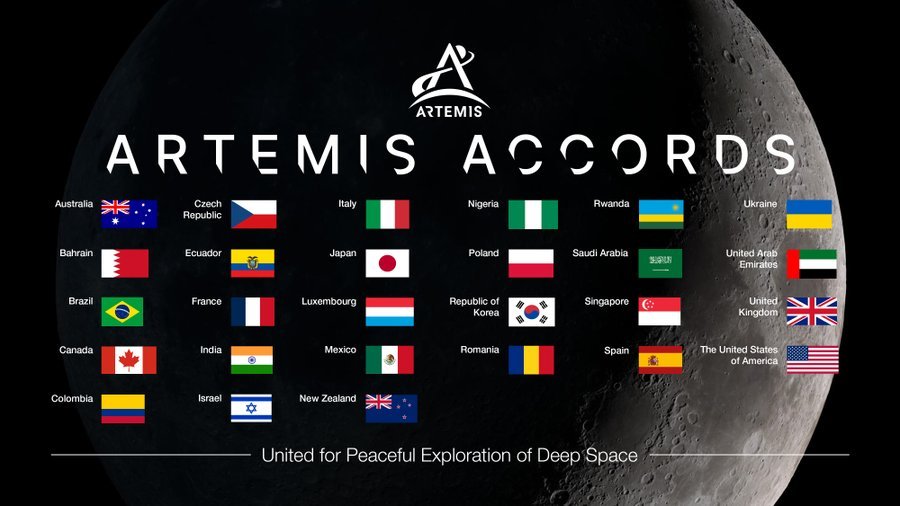

Principles of Artemis Accords
- Peaceful Purposes: Activities under these Accords should be for peaceful purposes.
- Transparency: Members must be transparent about their space policies and space exploration plans.
- Interoperability: Development of interoperable exploration infrastructures and standards.
- Emergency Assistance: Render necessary assistance to personnel in outer space who are in distress.
- Registration of Space Objects: Determining the registration of any relevant space object.
- Release of Scientific Data: Open sharing of scientific data from cooperative activities.
- Preserving Outer Space Heritage: It includes human or robotic landing sites, spacecraft, etc., on celestial bodies.
- Space Resources: Utilisation of space resources by safe and sustainable activities.
- Deconfliction of Space Activities: Refrain from any intentional actions that may create conflicts.
- Orbital Debris: Mitigation of orbital debris through safe disposal and limiting the generation.
Implications for India
Benefits
- Access to advanced technology and training
- Participation in crewed missions to the Moon
- Collaboration with other space agencies
- Help in making Indian missions cost-effective
- A major diplomatic achievement for India
Challenges
- India may be seen as aligning with the U.S. against other space powers, such as China and Russia.
Lunar Exploration Programmes of Major Space Powers
Outer Space Treaty
Key Principles Outlined in the Outer Space Treaty
|
|||
NASA’s Artemis Mission
Artemis I
Artemis II
Artemis III
Artemis IV
|
{Prelims – Envi – Species – 2023/08/26} Lion-Tailed Macaque (Macaca silenus)
- Context (TH): Lion-tailed macaques have been spotted in the forests of Nadugani, shared by the Nilgiris district in Tamil Nadu and Nilambur in Kerala.
- They might have moved into the area from Silent Valley and New Amarambalam (a reserve forest).
- Lion-tailed macaque (or wanderoo) is an Old World monkey endemic to the Western Ghats.
- Unlike other macaques, this arboreal species are shy and avoids humans when possible.
- Distribution: Found in three states, namely, Karnataka, Kerala, and Tamil Nadu.
- Habitat: Prefers tropical evergreen rainforests but also found in monsoon forests.
- Threats: Habitat loss, hunting and wood harvesting.
- IUCN: EN | CITES: Appendix I | WPA: Schedule I

Silent Valley NP
- Silent Valley NP is located in the Nilgiri Hills in the Malappuram district, Kerala, and Nilgiris district of Tamil Nadu. The park lies within the Nilgiri BR.
- Bhavani River (a tributary of the Kaveri River) and Kunthipuzha River (a tributary of Bharathappuzha River) originate in the vicinity of the park. The Kadalundi River also originates in this park.
- Vegetation: Mountain rainforests, tropical moist evergreen forest, sholas forests, open grasslands.
- Major Fauna: It is home to the largest population of lion-tailed macaques (EN).
- Other major fauna: Niligiri langur, Malabar giant squirrel, Nilgiri tahr, tiger, leopard, Travancore flying squirrel, Indian pangolin, etc.
- Major Avifauna: Nilgiri wood-pigeon, Malabar grey hornbill, Nilgiri flycatcher.
- Threats: Livestock grazing and forest fires, illegal plantations of cannabis, etc.

{Prelims – Envi – Species In News– 2023/08/26} Sahyadriophis Uttaraghati
- Context (HT): Sahyadriophis Uttaraghati is a new species of colubrid snake that was discovered in the northern part of the Western Ghats, a biodiversity hotspot in India.
- The new species is also known as the Northern Sahyadri keelback, as it has a keeled dorsal scale that gives it a rough texture.

- It is a small snake, measuring about 40 cm in length.
- It is mainly active during the monsoon season.
- It feeds on frogs and their eggs, and sometimes on fish and insects.
- It is not venomous, unlike some other colubrid snakes that have rear fangs and mild venom.
Colubrid snakes
|





![PMF IAS Environment for UPSC 2022-23 [paperback] PMF IAS [Nov 30, 2021]…](https://pmfias.b-cdn.net/wp-content/uploads/2024/04/pmfiasenvironmentforupsc2022-23paperbackpmfiasnov302021.jpg)


